Your cart is currently empty!
Tag: Protecting
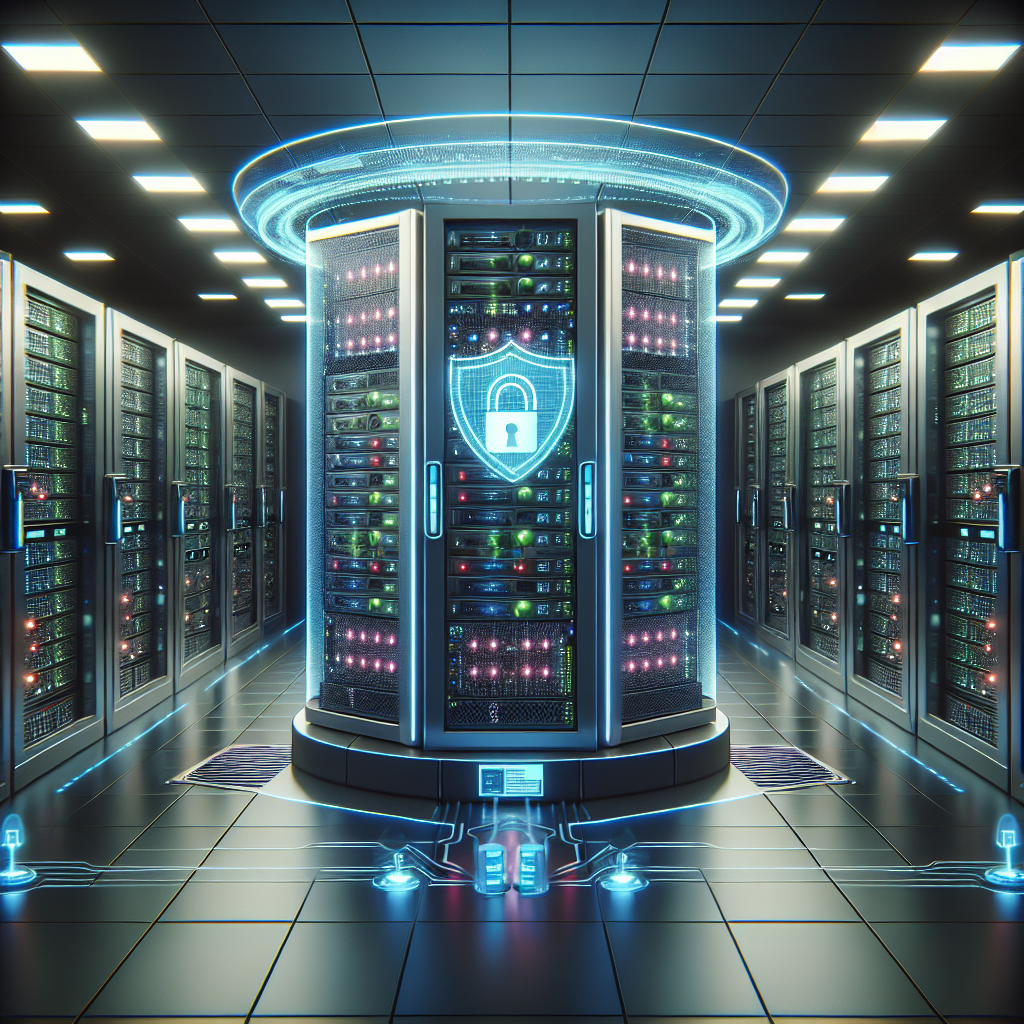
Protecting Against Cyber Attacks: How Data Center Security Systems Keep Your Information Safe
In today’s digital age, protecting against cyber attacks is a top priority for businesses and individuals alike. With the increasing reliance on technology and the internet, the threat of cyber attacks has never been greater. Data breaches can result in the loss of sensitive information, financial losses, and damage to a company’s reputation. This is why data center security systems are crucial in keeping your information safe.Data centers are facilities that house computer systems and data storage devices. They are responsible for storing, processing, and managing large amounts of data for businesses and organizations. With the amount of sensitive information stored in data centers, they are prime targets for cyber criminals looking to steal valuable data.
Data center security systems are designed to protect against cyber attacks and unauthorized access to the data stored within them. These systems include a combination of physical security measures, such as surveillance cameras, access control systems, and biometric scanners, as well as cybersecurity measures, such as firewalls, encryption, and intrusion detection systems.
One of the key components of data center security systems is the use of firewalls. Firewalls act as a barrier between the data center’s internal network and the outside world, monitoring and filtering incoming and outgoing network traffic to prevent unauthorized access. Encryption is another crucial component of data center security systems, as it ensures that data is securely transmitted and stored, making it unreadable to anyone who does not have the proper encryption key.
Intrusion detection systems are also important in protecting against cyber attacks. These systems monitor network traffic and detect any suspicious activity that may indicate a potential breach. Once detected, these systems can automatically block the malicious activity and alert security personnel to investigate further.
In addition to these technical measures, data center security systems also rely on physical security measures to protect against unauthorized access. Access control systems, such as key cards and biometric scanners, ensure that only authorized personnel have access to the data center. Surveillance cameras and security guards further enhance the physical security of the facility.
Overall, data center security systems play a critical role in protecting against cyber attacks and keeping your information safe. By implementing a combination of physical and cybersecurity measures, data centers can effectively safeguard sensitive data from cyber threats. As cyber attacks continue to evolve and become more sophisticated, it is essential for businesses to invest in robust data center security systems to protect their valuable information.

Data Center Safety: Essential Guidelines for Protecting Your Facility and Equipment
In today’s digital age, data centers play a crucial role in storing and processing vast amounts of information for businesses and organizations. With the increasing reliance on data center facilities, it is essential to prioritize safety measures to protect both the facility and the valuable equipment housed within it. Here are some essential guidelines for ensuring data center safety:1. Fire Safety: Data centers contain a significant amount of electrical equipment, making them susceptible to fire hazards. Implementing fire safety measures such as installing smoke detectors, fire suppression systems, and regular inspections can help prevent and mitigate the risk of fires.
2. Temperature and Humidity Control: Data center equipment is sensitive to temperature and humidity fluctuations, which can lead to equipment failure and data loss. Maintaining proper temperature and humidity levels through HVAC systems and monitoring equipment can help prevent costly downtime and equipment damage.
3. Physical Security: Data centers house valuable equipment and sensitive information, making them a target for theft and sabotage. Implementing strict access control measures, surveillance cameras, and security personnel can help deter unauthorized access and protect the facility and equipment.
4. Emergency Preparedness: It is crucial to have an emergency response plan in place in case of natural disasters, power outages, or other emergencies. Regular drills and training sessions can help ensure that staff are prepared to respond effectively in emergency situations.
5. Equipment Maintenance: Regular maintenance and inspections of data center equipment are essential for ensuring optimal performance and preventing equipment failures. Establishing a maintenance schedule and conducting regular checks can help identify and address potential issues before they escalate.
6. Cable Management: Proper cable management is essential for maintaining a safe and organized data center environment. Cluttered cables can pose a tripping hazard and obstruct airflow, leading to equipment overheating. Implementing cable management solutions such as cable trays and racks can help keep cables organized and secure.
7. Compliance with Regulations: Data centers are subject to various regulations and standards governing safety and security. Staying informed about industry best practices and compliance requirements can help ensure that the facility meets all necessary safety standards.
By following these essential guidelines for data center safety, businesses can protect their facility and equipment from potential risks and ensure the continued reliability and performance of their data center operations. Prioritizing safety measures not only safeguards valuable equipment and data but also helps maintain business continuity and minimize downtime in the event of emergencies.
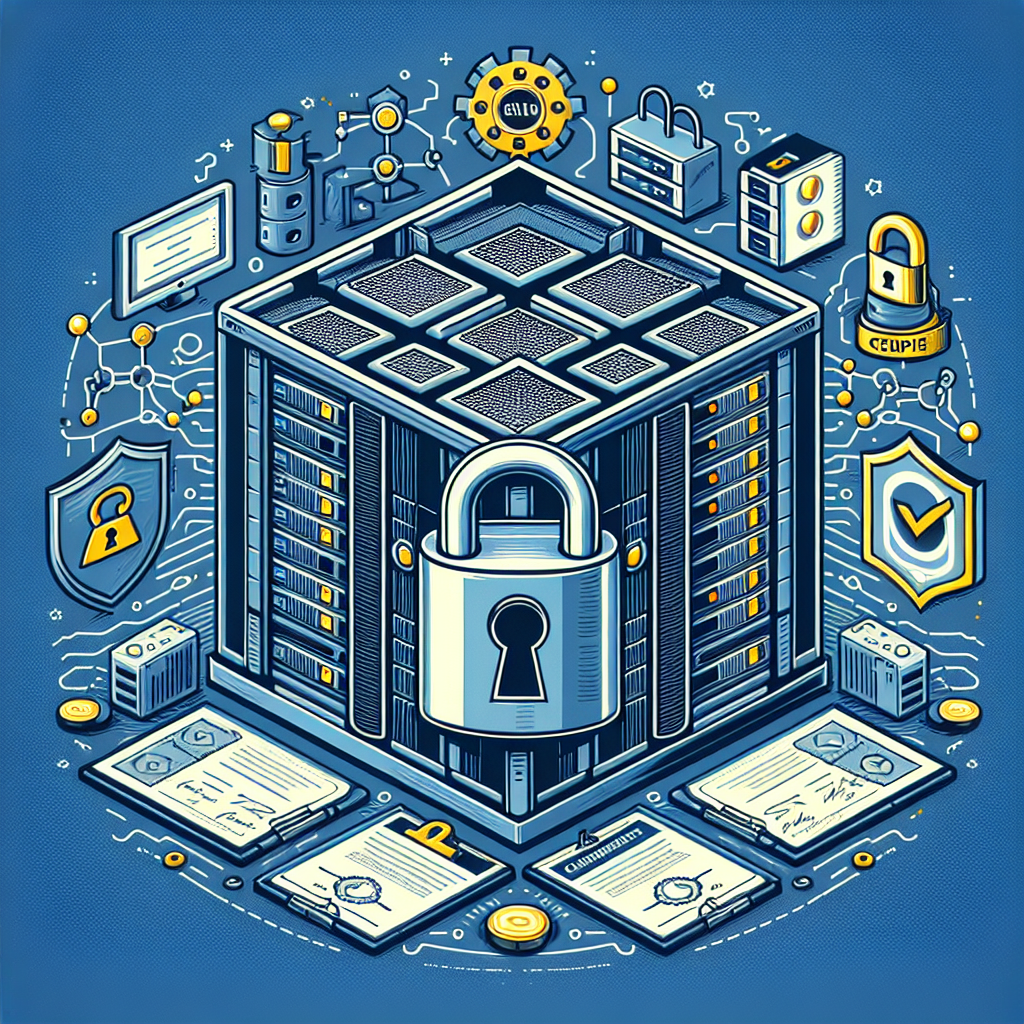
The Role of Data Center Compliance in Protecting Sensitive Information
Data centers play a crucial role in today’s digital world, serving as the backbone of the internet and storing vast amounts of sensitive information. With cyber threats on the rise, it is more important than ever for data centers to comply with industry regulations and standards to protect this valuable data.Data center compliance involves adhering to various rules and guidelines set forth by regulatory bodies and industry organizations to ensure the security and privacy of sensitive information. These regulations cover a wide range of areas, including data storage, processing, and transmission, as well as physical security measures such as access controls and monitoring.
One of the key reasons why data center compliance is essential for protecting sensitive information is to prevent data breaches and cyber attacks. Failure to comply with regulations can lead to severe consequences, including financial penalties, reputational damage, and legal action. By following industry standards and best practices, data centers can minimize the risk of security incidents and safeguard their clients’ data.
Data center compliance also helps to build trust with customers and stakeholders. In today’s data-driven world, consumers are increasingly concerned about the security and privacy of their personal information. By demonstrating compliance with industry regulations, data centers can assure their clients that their data is being handled in a secure and responsible manner, enhancing their reputation and credibility.
Furthermore, data center compliance can help organizations stay ahead of the curve in a rapidly evolving regulatory landscape. With new laws and regulations being introduced all the time, it is essential for data centers to stay up-to-date with the latest requirements and ensure that their operations are in compliance. By investing in compliance measures, data centers can avoid costly remediation efforts and maintain a competitive edge in the market.
In conclusion, the role of data center compliance in protecting sensitive information cannot be overstated. By adhering to industry regulations and standards, data centers can mitigate the risk of data breaches, build trust with customers, and stay ahead of regulatory changes. In today’s digital age, compliance is not just a requirement – it is a critical component of data security and privacy.
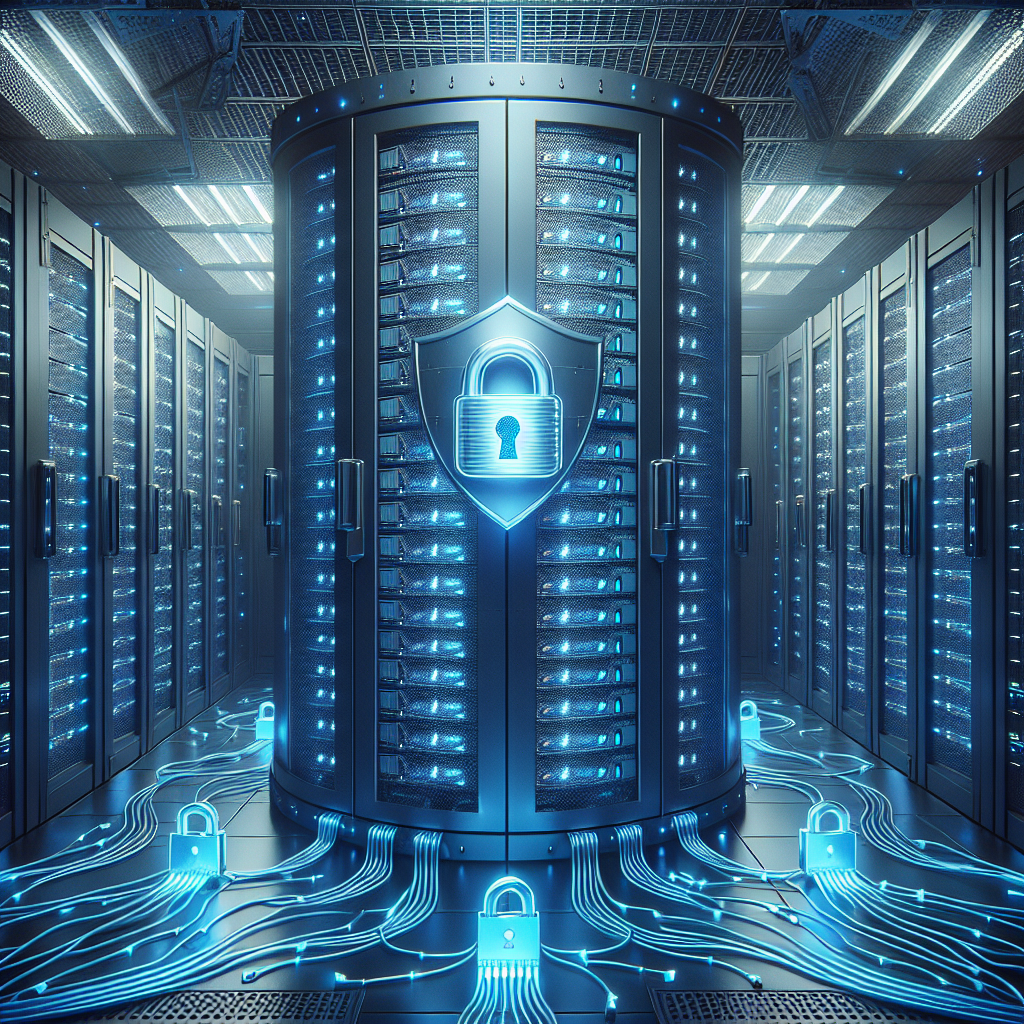
Data Center Server Security: Protecting Your Business’s Most Valuable Asset
In today’s digital age, data has become one of the most valuable assets for businesses. With the increasing reliance on technology, businesses are storing and processing massive amounts of data on their servers. This data can include sensitive information such as customer details, financial records, and intellectual property. As a result, it is crucial for businesses to prioritize data center server security to protect their most valuable asset.Data center server security refers to the measures taken to secure servers and the data stored on them from unauthorized access, theft, and cyberattacks. This includes implementing security protocols, firewalls, encryption, and monitoring systems to safeguard the data and prevent breaches.
One of the key aspects of data center server security is physical security. Data centers house servers that store critical business data, and it is important to ensure that only authorized personnel have access to them. This can be achieved through the use of biometric access controls, security cameras, and security guards. Additionally, data centers should be equipped with fire suppression systems and temperature controls to protect servers from physical damage.
In addition to physical security, businesses must also focus on network security to protect their data. This includes implementing firewalls, intrusion detection systems, and encryption to prevent unauthorized users from accessing the servers. Regular security audits and vulnerability assessments should also be conducted to identify and address any weaknesses in the system.
Data center server security is particularly important for businesses that rely on cloud computing services. While cloud providers offer a high level of security, businesses must still take steps to secure their data on the cloud. This includes encrypting data before it is uploaded to the cloud, implementing strong access controls, and regularly monitoring the cloud environment for any suspicious activity.
Failure to properly secure data center servers can have serious consequences for businesses. Data breaches can result in financial losses, damage to reputation, and legal repercussions. In addition, businesses may also face regulatory fines for failing to protect customer data.
In conclusion, data center server security is essential for protecting a business’s most valuable asset – its data. By implementing robust security measures, businesses can safeguard their data from cyber threats and ensure the continuity of their operations. It is important for businesses to invest in data center server security to protect their sensitive information and maintain the trust of their customers.
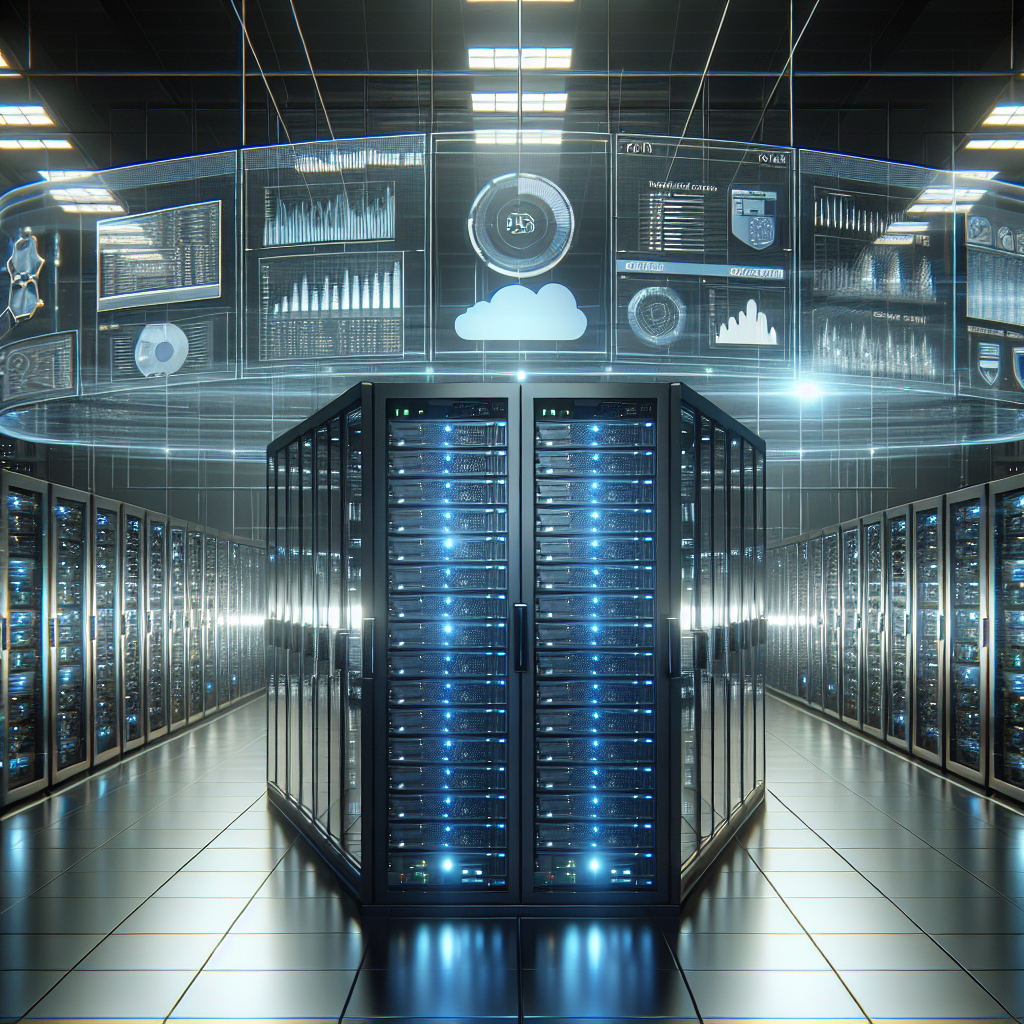
Cybersecurity and Data Center Monitoring: Protecting Your Critical Infrastructure
In today’s digital age, cybersecurity and data center monitoring have become crucial components in protecting critical infrastructure. As businesses and organizations increasingly rely on technology to store and manage their data, the need for strong cybersecurity measures to safeguard this information has never been greater.A data center is a facility used to house computer systems and associated components, such as telecommunications and storage systems. These centers play a vital role in storing and processing critical data, making them a prime target for cyberattacks. From financial institutions to government agencies, no organization is immune to the threat of cybercrime.
Cybersecurity measures are essential in protecting data centers from potential threats such as malware, ransomware, and unauthorized access. By implementing firewalls, encryption, and multi-factor authentication, organizations can significantly reduce the risk of a data breach. Regular security audits and updates are also important to ensure that systems are up-to-date and protected against new threats.
In addition to cybersecurity measures, data center monitoring is crucial in maintaining the operational efficiency and security of these facilities. Monitoring tools can provide real-time insights into the performance of servers, networks, and applications, allowing IT teams to identify and address issues before they escalate. By monitoring key metrics such as server uptime, network traffic, and storage capacity, organizations can ensure that their data centers are running smoothly and securely.
Furthermore, data center monitoring can help organizations comply with regulatory requirements and industry standards. By tracking and documenting key performance indicators, organizations can demonstrate to auditors and regulators that they are following best practices and protecting sensitive data.
Overall, cybersecurity and data center monitoring are essential in protecting critical infrastructure from cyber threats. By implementing robust security measures and monitoring tools, organizations can safeguard their data and ensure the smooth operation of their data centers. In an increasingly digital world, investing in cybersecurity and data center monitoring is not just a good practice – it’s a necessity.
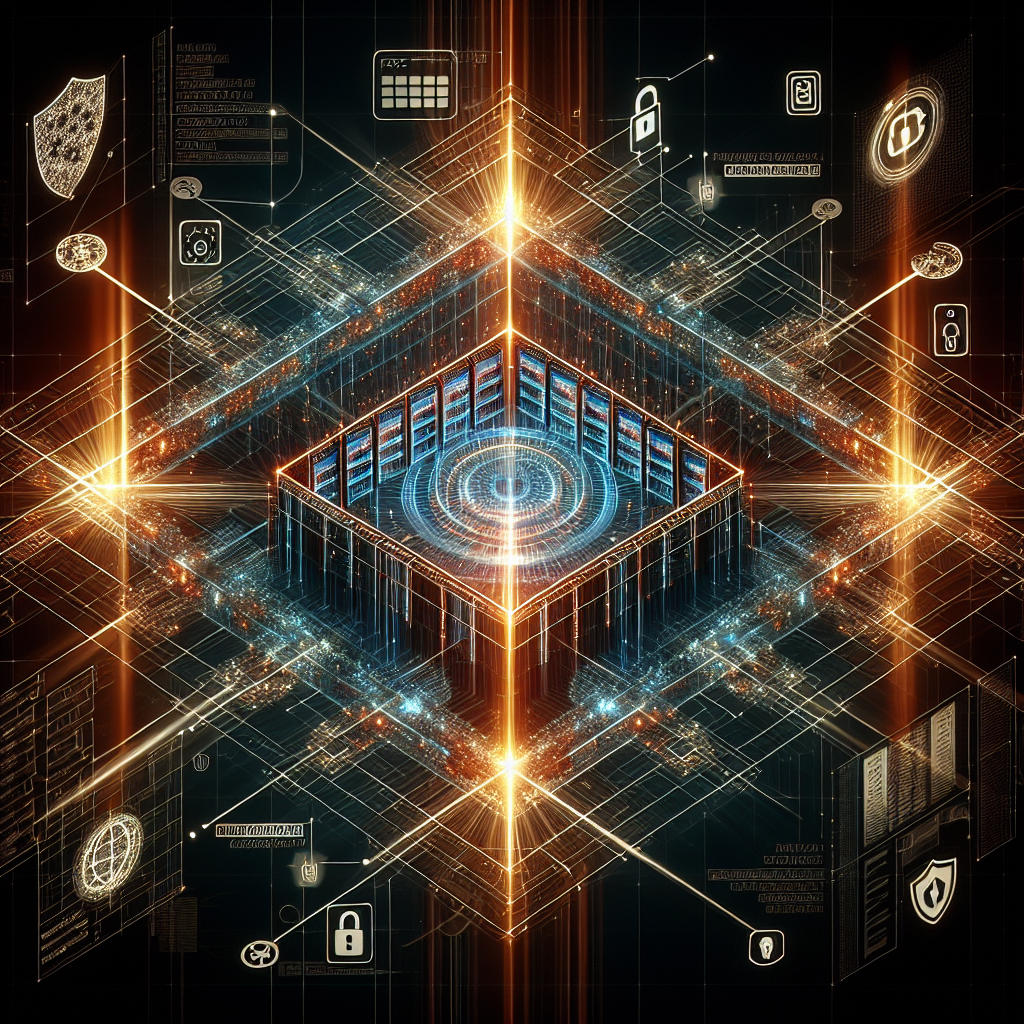
Protecting Your Investment: Strategies for Enhancing Data Center Safety
In today’s digital age, data centers play a crucial role in storing and managing sensitive information for businesses and organizations. As such, protecting these data centers from potential threats is essential in ensuring the security and integrity of the data they contain. Implementing strategies to enhance data center safety is key to safeguarding this valuable investment.One of the first steps in enhancing data center safety is to conduct a thorough risk assessment. This involves identifying potential threats and vulnerabilities that could compromise the security of the data center, such as power outages, natural disasters, cyber attacks, and physical breaches. By understanding these risks, data center managers can develop a comprehensive security plan to mitigate them.
Physical security measures are also crucial in protecting a data center. This includes implementing access controls, such as biometric scanners or keycard systems, to restrict entry to authorized personnel only. Surveillance cameras and security guards can also be deployed to monitor and safeguard the data center premises.
In addition to physical security measures, it is important to implement cybersecurity measures to protect the data stored in the data center. This includes installing firewalls, antivirus software, and intrusion detection systems to prevent unauthorized access and malware attacks. Regular security audits and penetration testing can help identify and address any vulnerabilities in the data center’s network.
Regular maintenance and monitoring of the data center’s infrastructure are also essential in ensuring its safety. This includes conducting regular inspections of power and cooling systems, as well as monitoring environmental conditions such as temperature and humidity. By proactively addressing potential issues, data center managers can prevent equipment failures and downtime.
Another important aspect of data center safety is disaster recovery planning. This involves developing a comprehensive plan to ensure business continuity in the event of a disaster, such as a fire, flood, or cyber attack. This may include backing up data offsite, implementing redundant systems, and testing the disaster recovery plan regularly to ensure its effectiveness.
Overall, protecting a data center investment requires a multi-faceted approach that combines physical security measures, cybersecurity measures, regular maintenance, and disaster recovery planning. By implementing these strategies, data center managers can enhance the safety and security of their data centers, safeguarding valuable information and ensuring business continuity.
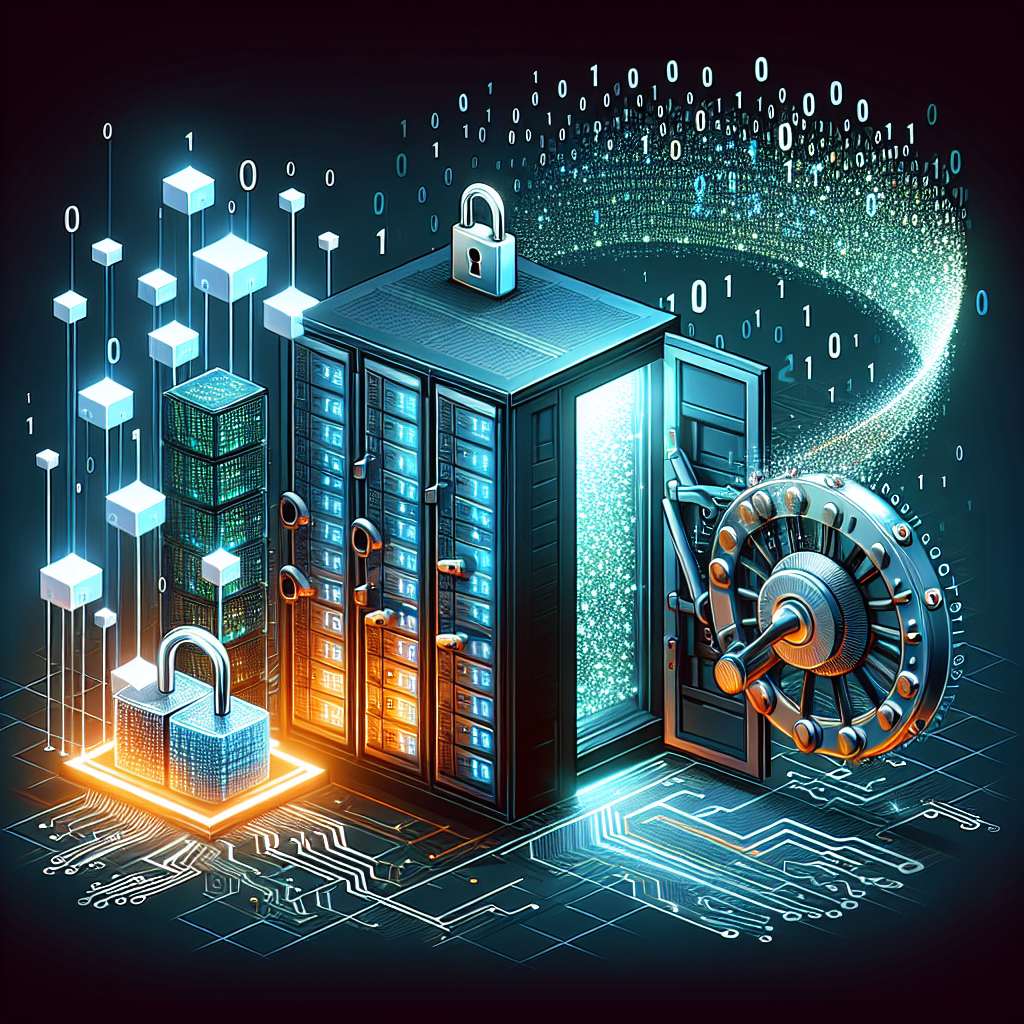
Protecting Your Data: The Key to Data Center Resilience
In today’s digital age, data has become one of the most valuable assets for businesses. From customer information to financial records, companies rely on data to make informed decisions and drive growth. However, with the increasing amount of data being generated and stored, the risk of data breaches and cyber attacks has also risen.Data center resilience is crucial for businesses to ensure the protection of their data. A resilient data center is one that can withstand and recover from various threats, including natural disasters, power outages, and cyber attacks. By implementing robust security measures and best practices, businesses can safeguard their data and minimize the risk of data loss or theft.
One of the key steps in protecting data is implementing strong encryption protocols. Encryption converts data into a coded format that can only be accessed with the correct decryption key. This helps to prevent unauthorized access and ensure the confidentiality of sensitive information. Businesses should also regularly update their encryption protocols and security systems to stay ahead of evolving cyber threats.
In addition to encryption, businesses should also implement access controls and authentication mechanisms to limit who can access their data. This includes using multi-factor authentication, strong passwords, and role-based access control to ensure that only authorized personnel can access sensitive information. Regularly reviewing and updating access controls can help prevent unauthorized access and data breaches.
Furthermore, businesses should regularly backup their data to ensure that they can recover quickly in the event of data loss or corruption. This includes storing backups in secure, offsite locations to protect against physical threats such as fires or floods. Regularly testing backup and recovery systems can help ensure that businesses can quickly restore their data in the event of a disaster.
In conclusion, protecting data is essential for businesses to ensure the resilience of their data centers. By implementing strong encryption protocols, access controls, and backup systems, businesses can safeguard their data and minimize the risk of data breaches. Investing in data center resilience is not only critical for protecting sensitive information, but also for maintaining the trust and confidence of customers. By prioritizing data protection, businesses can ensure the continuity and success of their operations in an increasingly digital world.
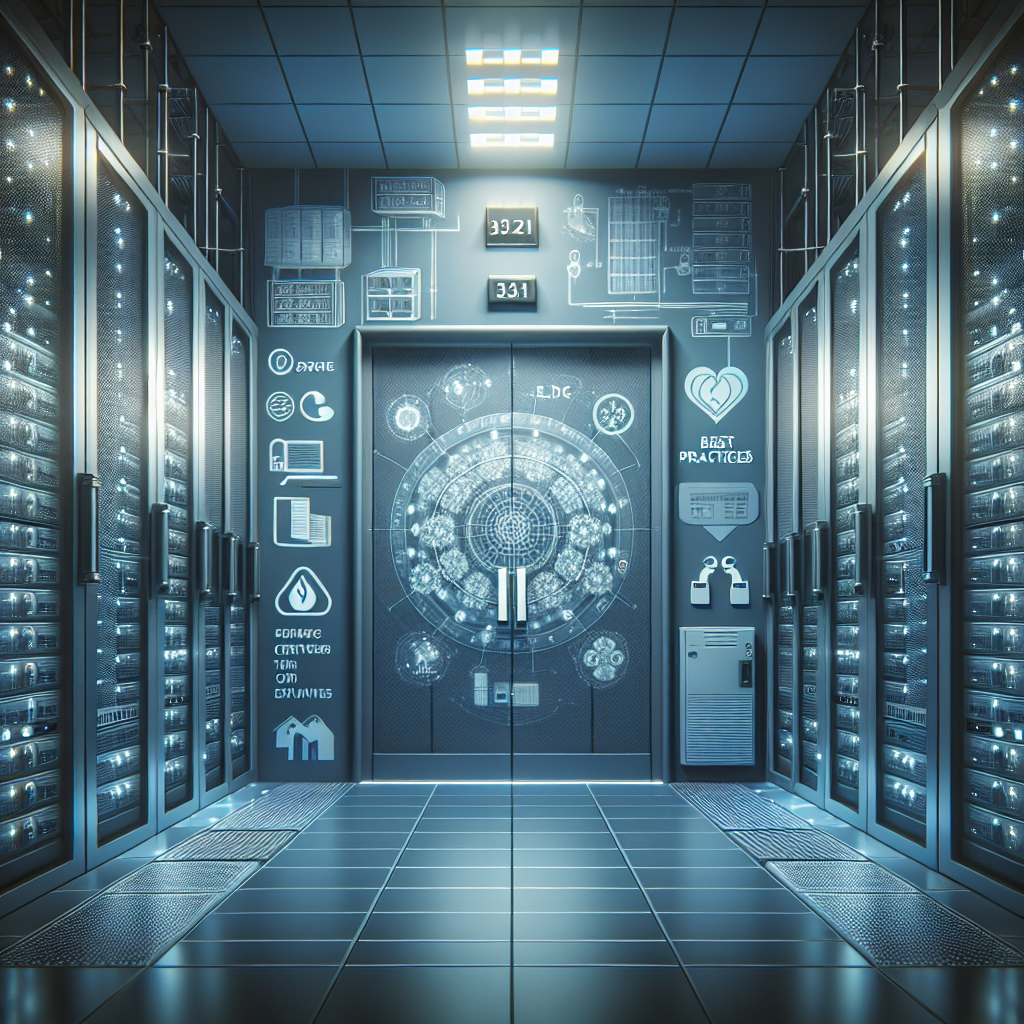
Ensuring Data Center Safety: Best Practices for Protecting Your Facility
Data centers are critical components of modern businesses, housing servers, storage devices, and networking equipment that store and process vast amounts of data. Ensuring the safety and security of these facilities is essential to protect valuable information and maintain business continuity. Here are some best practices for safeguarding your data center:1. Physical Security Measures: Implementing physical security measures such as access control systems, surveillance cameras, and security guards can help prevent unauthorized access to the data center. Restricting access to only authorized personnel can significantly reduce the risk of data breaches and theft.
2. Fire Suppression Systems: Data centers are at risk of fire due to the high concentration of electrical equipment. Installing fire suppression systems, such as sprinklers, smoke detectors, and fire extinguishers, can help mitigate the risk of fire damage and protect valuable equipment.
3. Environmental Controls: Data centers require precise environmental controls to maintain optimal temperature and humidity levels for equipment performance. Monitoring systems can help detect fluctuations in temperature and humidity, allowing for timely intervention to prevent equipment damage.
4. Redundant Power Supply: Power outages can disrupt data center operations and lead to data loss. Implementing redundant power supply systems, such as uninterruptible power supplies (UPS) and backup generators, can ensure continuous power availability to keep the data center running smoothly.
5. Regular Maintenance and Testing: Regular maintenance and testing of equipment and systems are essential to identify and address potential issues before they escalate into major problems. Conducting routine inspections, equipment checks, and performance tests can help ensure the reliability and safety of the data center.
6. Disaster Recovery Plan: Developing a comprehensive disaster recovery plan is crucial to minimize the impact of unexpected events, such as natural disasters or cyber attacks, on the data center. Establishing backup and recovery procedures, offsite data storage, and communication protocols can help ensure business continuity in the face of adversity.
7. Employee Training: Investing in employee training on data center safety protocols and best practices can help create a culture of security and compliance within the organization. Educating staff on security policies, emergency procedures, and data handling practices can enhance overall data center safety.
In conclusion, safeguarding your data center is essential to protect valuable information, maintain business continuity, and mitigate risks. By implementing physical security measures, fire suppression systems, environmental controls, redundant power supply, regular maintenance and testing, disaster recovery plans, and employee training, you can ensure the safety and security of your data center facility. Remember that prevention is key to avoiding data breaches and downtime, so prioritize data center safety as a top priority in your organization.
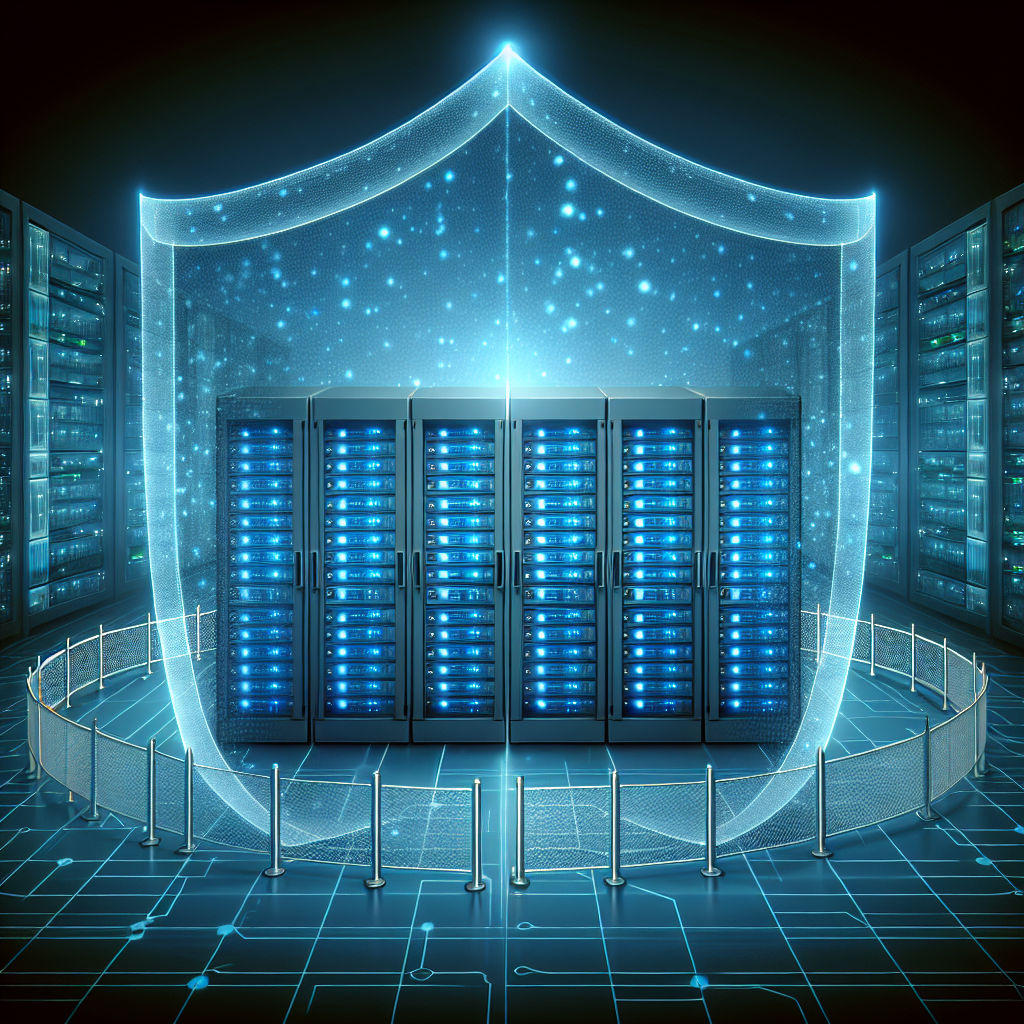
Protecting Your Data: The Importance of Data Center Security Systems
In today’s digital age, data is one of the most valuable assets that a company can possess. From customer information to financial records, businesses rely on data to make important decisions and drive growth. However, with the increasing threat of cyber attacks and data breaches, protecting this valuable information has become more crucial than ever before. This is where data center security systems come into play.Data center security systems are designed to safeguard the sensitive information stored within a data center from unauthorized access, theft, or damage. These systems employ a variety of measures to ensure the integrity and confidentiality of data, including physical security measures, access controls, and encryption techniques.
One of the most important aspects of data center security is physical security. Data centers are typically housed in secure facilities that are equipped with security cameras, alarms, access control systems, and biometric authentication measures. These measures help to prevent unauthorized individuals from gaining access to the facility and the data stored within.
Access controls are another crucial component of data center security systems. By limiting access to only authorized personnel, businesses can prevent data breaches from occurring. This can be achieved through the use of passwords, security tokens, and biometric authentication methods.
Encryption is also an essential tool in protecting data from unauthorized access. By encrypting data before it is stored in a data center, businesses can ensure that even if a breach occurs, the stolen information will be unreadable to the attacker.
In addition to these measures, data center security systems also include monitoring and logging capabilities. By continuously monitoring the data center environment and logging all activities, businesses can quickly detect any suspicious behavior and respond to potential threats in a timely manner.
Overall, data center security systems play a vital role in protecting the sensitive information that businesses rely on to operate. By implementing a robust security system, companies can safeguard their data from unauthorized access, theft, and damage, giving them peace of mind and ensuring the trust of their customers. In today’s digital world, data security should be a top priority for any business that wants to thrive and succeed.
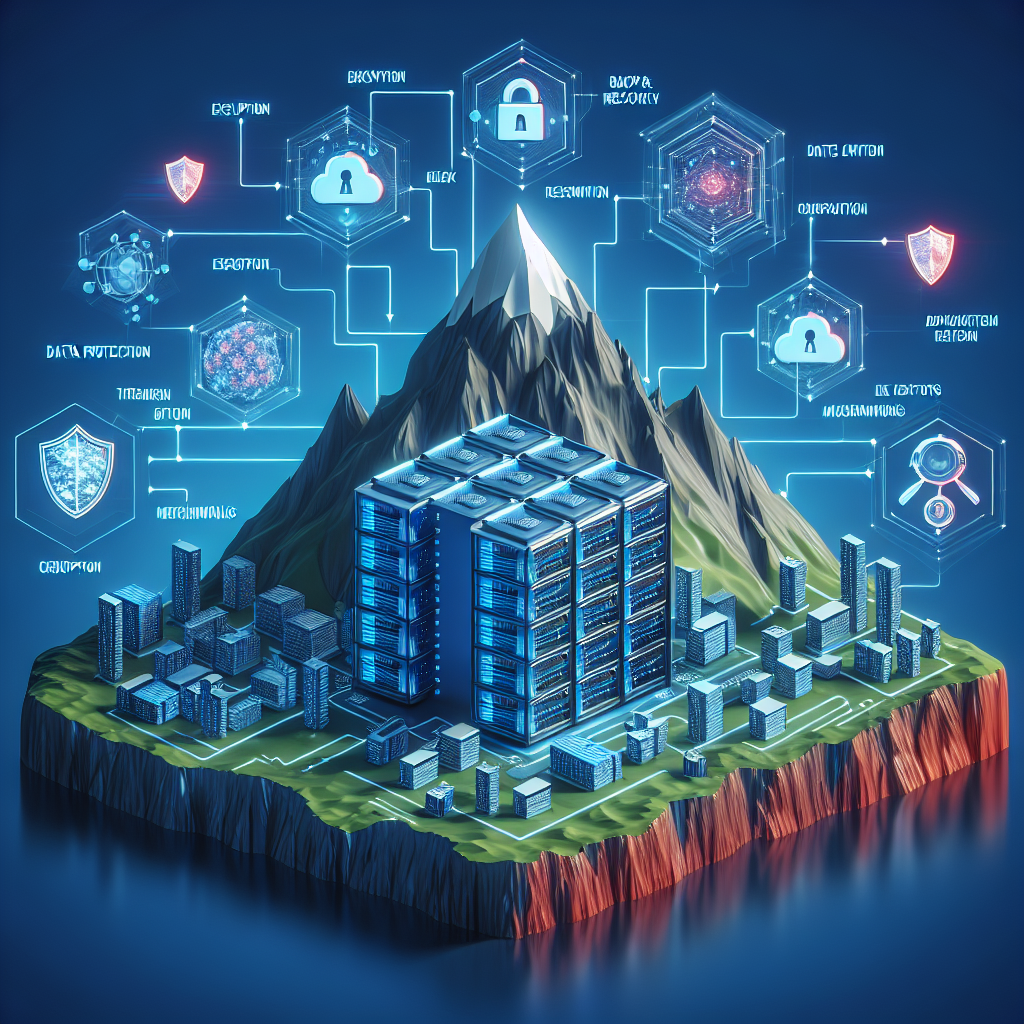
Protecting Your Data: Strategies for Improving Data Center Resilience
In today’s digital age, data is the lifeblood of businesses. From customer information to financial records, companies rely on their data to operate efficiently and effectively. However, with the increasing frequency of cyberattacks and natural disasters, protecting this valuable asset has become more important than ever. One key aspect of data protection is ensuring the resilience of data centers, which are the central hub for storing and processing data.Data center resilience refers to the ability of a data center to continue operating without interruption, even in the face of unexpected events such as power outages, equipment failures, or cyberattacks. To improve data center resilience, businesses can implement a number of strategies:
1. Redundant Power and Cooling Systems: Power outages can be a major threat to data center operations. By installing backup generators and uninterruptible power supply (UPS) systems, businesses can ensure that their data centers remain operational even in the event of a power failure. Similarly, redundant cooling systems can prevent overheating and equipment failures.
2. Data Backup and Recovery: Regularly backing up data is essential for protecting against data loss in the event of a cyberattack or hardware failure. Businesses should implement a robust data backup and recovery plan that includes both onsite and offsite backups, as well as regular testing to ensure data can be quickly restored.
3. Physical Security Measures: Data centers house sensitive information and valuable equipment, making them prime targets for theft and vandalism. Businesses should invest in physical security measures such as access controls, surveillance cameras, and alarms to prevent unauthorized access and protect data center assets.
4. Disaster Recovery Planning: Natural disasters such as floods, fires, and earthquakes can pose a significant risk to data center operations. Businesses should develop a comprehensive disaster recovery plan that outlines procedures for recovering data and restoring operations in the event of a disaster. This plan should include offsite data storage, alternate work locations, and regular testing to ensure readiness.
5. Cybersecurity Measures: Cyberattacks are a growing threat to data center operations, with hackers constantly seeking to exploit vulnerabilities in systems and networks. Businesses should implement robust cybersecurity measures such as firewalls, intrusion detection systems, and encryption to protect against unauthorized access and data breaches.
In conclusion, protecting data center resilience is crucial for ensuring the continuity of business operations and safeguarding valuable data. By implementing strategies such as redundant power and cooling systems, data backup and recovery, physical security measures, disaster recovery planning, and cybersecurity measures, businesses can improve the resilience of their data centers and mitigate the risks of data loss and downtime. Ultimately, investing in data center resilience is an investment in the long-term success and security of the business.
